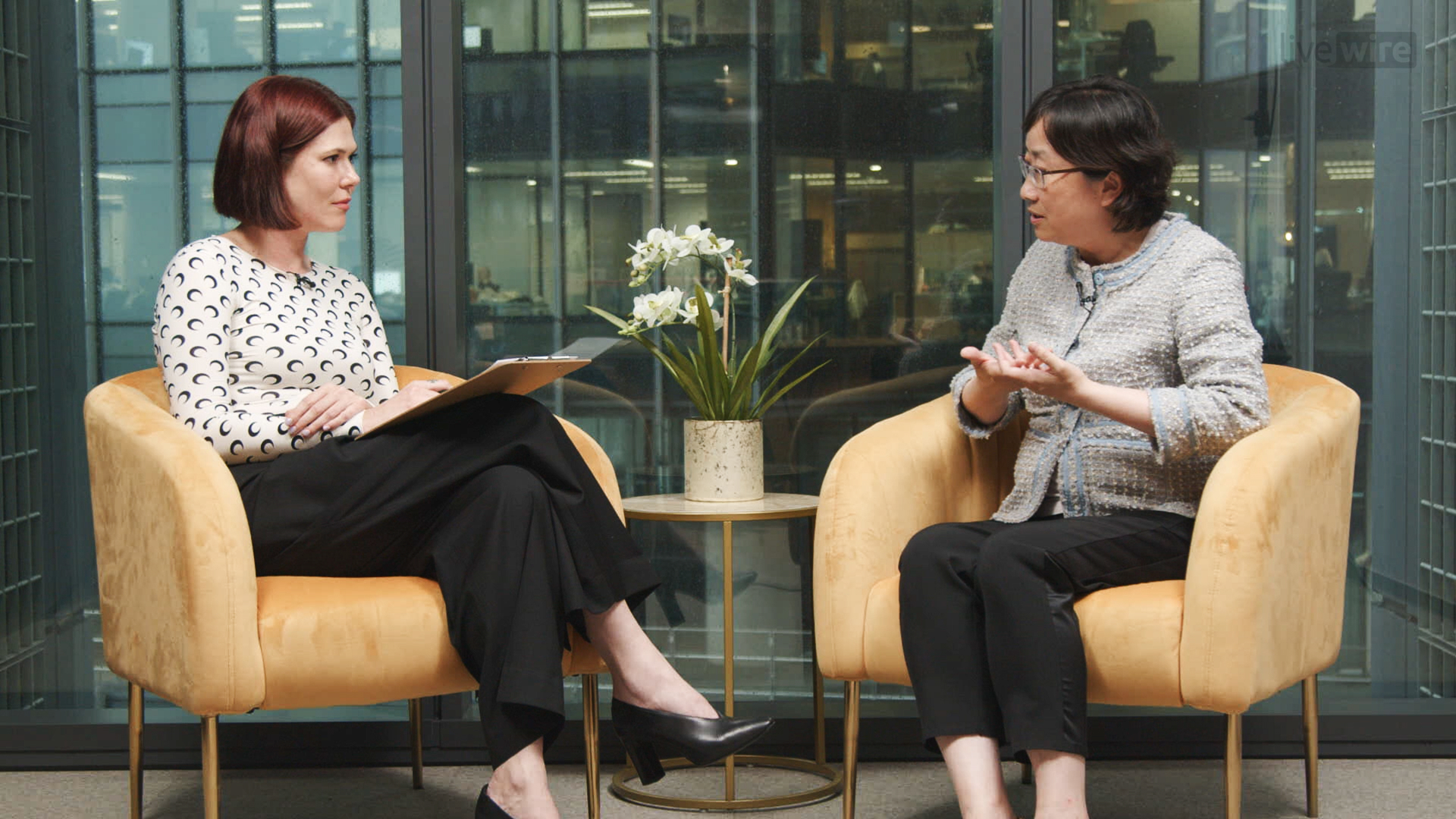"Volatility creates opportunity" - but only if you know where to find it
Please note, this interview was filmed 22 May, 2025
“Volatility creates opportunity”
How many times have we heard that line since the start of the year?
Since starting at Livewire three months ago, I’ve heard it more times than I can count (you can pretty much time my start date with when markets went into meltdown).
Opportunity is like potential. It can stare you in the face, but if you don’t know what to do with it, then it is useless.
While it’s a pithy soundbite, it wasn’t until I sat down with Caroline Cai, CEO of Pzena Investment Management, that I fully understood what it means as she explained the Pzena approach to deep value investing.
For the full experience, watch the video above.
Defining deep value
“To us, value means being sensitive to the price you pay,” Cai explains. “We want to buy good businesses at low prices — who wouldn’t?”
But finding those opportunities requires understanding a specific kind of market inefficiency. “We're not out there looking for cheap and terrible businesses. That's not what we do,” says Cai.
Rather, Pzena’s deep value approach centres on finding companies trading at low valuations because something’s gone wrong - but not irreparably.
They’re businesses with solid fundamentals, facing challenges the market may have overreacted to. Investors crave certainty but Cai says that desire is exactly what creates opportunity.
She adds that a volatile and uncertain environment is favourable for value.
“What we do is really trying to take advantage of the human emotional response...The only thing you know for sure is the price you pay.”
Cai explains that this is when valuations reflect the worst-case scenario, but not the potential for recovery. What can improve, Cai says, through management and ingenuity, is not necessarily in the valuation.
Pzena builds portfolios full of these kinds of businesses - what Cai calls “companies in pain for different reasons.” It’s diversification, but not in the traditional sense.
“We're building a concentrated portfolio that looks different from the benchmark. So there will be short-term volatilities in our performance versus others." Cai says.
The payoff comes from understanding the range of possible outcomes and paying as little as possible for each investment.
“We don't need a crystal ball because if 60% of them work out to the upside, the collective outcome at the portfolio level will be very good. That's how we define value.”

Why inflation favours value
As part of Pzena’s deep value approach, two principles stand out. I asked Cai to dig down into the thesis.
1. Global cheap stocks offer real returns in inflationary times
Companies react, says Cai. They cut costs, raise prices, and find ways to improve earnings. Whereas with value stocks, as a lot of the bad news is already priced in, they tend to hold up better as inflation rises.
2. Value has favourable drawdown characteristics
Analysing data going back to the 70s showed that while value stocks fall like the rest of the market in drawdowns, they tend to recover faster. Cai compares it to surfing,
“What matters is actually how quickly you get back on the board after you've been knocked off. I think about the recovery of value in a similar fashion."
Samsung: The contrarian case study
One standout name in the portfolio is Samsung (KRX: 005930) - a stock that’s fallen by roughly 30% over the past year. But Cai sees a mismatch between perception and potential.
While everyone knows Samsung for its handsets and TVs, the core of Samsung's business is its memory business, of which they have been the undisputed leader - until the last few years.
Oversupply during Covid and subsequent pricing pressure, and then being late to the party transitioning to high-bandwidth memory (HBM) used in AI, has allowed their long-time competitor, SK Hynix (KRX: 000660), to blow them out of the water and become the monopoly power in HBM supply.
But the market is assuming Samsung will never catch up to SK Hynix — something Cai disagrees with.
“We think the gap in the performance of Samsung and Hynix can be fixed. They can catch up to Hynix, and it's in the interest of Nvidia to find multiple suppliers versus having a monopolistic vendor.”
And if they don’t? “Ultimately, there's the underlying earnings power of the conventional memory business and all the other things that Samsung does…If it doesn't get better, not a whole lot of downside, if it does improve, a tremendous amount of upside potential.”
Risk in the value investing environment
Risk isn’t about daily price movements - it’s about the permanent impairment of capital, Cai says. That means avoiding two key traps:
1. Overpaying for businesses without strong earnings power
2. Investing in companies with too much debt, where short-term issues could destroy long-term value.
Pzena systematically avoids excessive debt and focuses deeply on the long term, asking three key questions - what made the business great in the first place, what’s changing relative to the historical source of value add, and what are the available avenues for improvement?
“We look for as many different things as possible because our view is we have sufficient humility to say there's always a grain of truth in every bear case. “
Cai says they accept not every bet they place will work out, but even when the downside case plays out, “it's 20-30% potential downside that we're willing to tolerate. But on the upside, we're looking for 60, 80 and 100%.”


2 funds mentioned
1 contributor mentioned
.jpg)
.jpg)